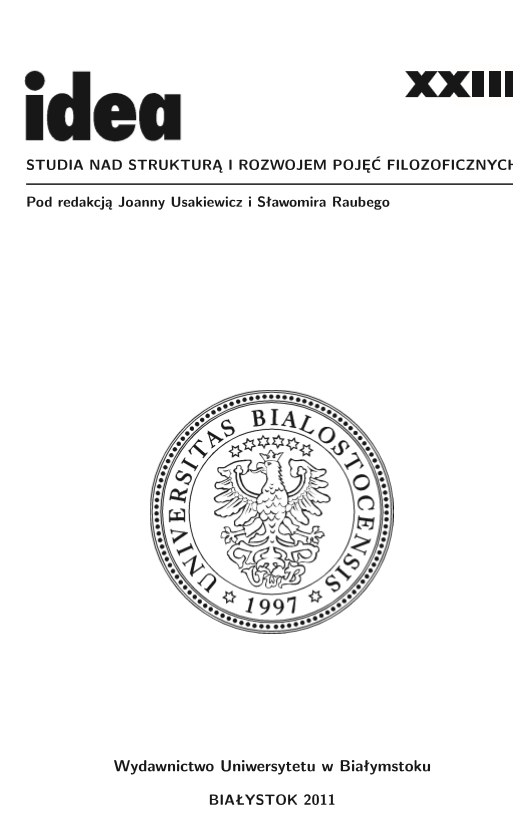Marburska filozofia krytyczna wobec psychologizmu
Marburska philosophy, critical psychology
Author(s): Przemysław ParszutowiczSubject(s): Education, Epistemology, Cognitive Psychology
Published by: Wydawnictwo Uniwersytetu w Białymstoku
Summary/Abstract: The article discusses the position taken by the neokantian Marburg School against the epistemological claim of psychologism, which localized the ultimate source of knowledge and its proof of validity in psychological realm. Marburg School opposed strongly against psychologism to such an extent that “antypsychologism” itself became one of the most prominent features of the “Marburg School doctrine”. Antypsychologism served both as a negative point of reference for the transcendental method developed and practiced by the Marburg School, and as an exemplary determinant which distinguished that specific tradition from other neokantian schools. According to Cohen’s, Natorp’s and Cassirer’s critique, psychologism conceived the whole problem of cognition in a very limited sense and reduced all the cognitive acts to the acts of consciousness; psychologism deemed it is necessary that all the cognitive acts have to be conscious, therefore treated consciousness as a necessary condition of all cognitive operations. Exponents of the Marburg School, most notably Ernst Cassirer, did not seek to get rid of psychology at any cost from the edifice of scientific knowledge, but simply to put is in its right place and to separate “science of the contents” from the “science of the forms” of knowledge. The latter was supposed to become a fundamental subject of interest for the critique of epistemology developed by the Marburg School as a strictly philosophical science. Its task was to deduce from any systematically developed domain of knowledge its logical structure and to show constitutive for the object of the given science pure cognitive functions, which are independent from the psycho-physiological constitution of the subject of cognition.
Journal: Idea. Studia nad strukturą i rozwojem pojęć filozoficznych
- Issue Year: 1/2011
- Issue No: XXIII
- Page Range: 43-52
- Page Count: 10
- Language: Polish

